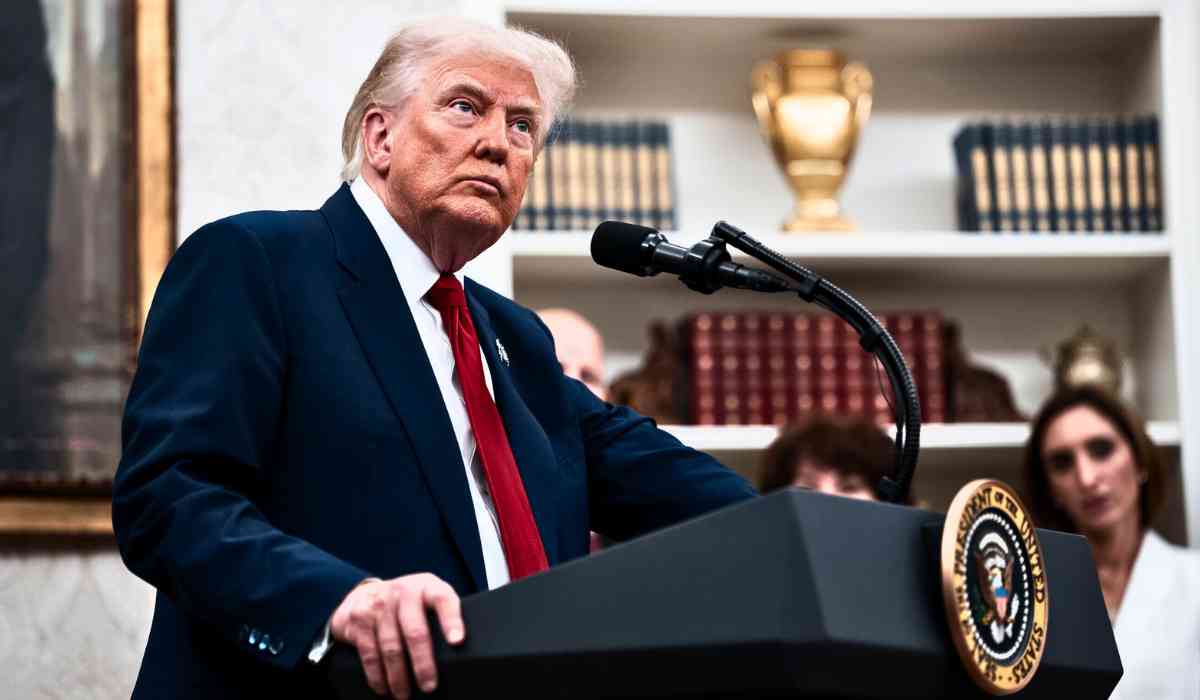In a dramatic turn of events, a US federal appeals court has given President Donald Trump a temporary victory, allowing his controversial tariffs to stay in place—just one day after a lower court had ruled them illegal. This legal seesaw highlights the ongoing battle over presidential power and trade policy in the United States.
What Happened?
On May 28, 2025, the US Court of International Trade ruled that President Trump had overstepped his authority by using emergency powers to impose sweeping tariffs on imports from nearly all major US trading partners, including Canada, Mexico, and China. The court said these tariffs, imposed under a law meant for national emergencies, were being used in a way that was not allowed. The tariffs were meant to address what Trump called unfair trade practices and to fight the flow of fentanyl into the US, but the court found the reasons not strong enough for such a broad move.
The very next day, May 29, a federal appeals court stepped in. It put the lower court’s decision on hold, meaning the tariffs would stay in place—at least for now. The appeals court did not explain its decision, but it gave the Trump administration a chance to argue its case further. The White House welcomed this move, saying the tariffs are important for national security and for keeping America’s trade partners in line.
Why Is This Important?
Tariffs are taxes on goods that come into the country. When the US puts tariffs on imports, it makes those goods more expensive for American businesses and consumers. President Trump has used tariffs as his main tool for trade policy, arguing that they help protect American jobs and force other countries to be fairer in trade. But many experts, businesses, and even some states say the tariffs hurt the economy and raise prices for everyone.
The legal fight is not just about money—it is about who has the power to make big decisions in trade. The US Constitution says that Congress, not the president, has the power to set tariffs. But over the years, Congress has passed laws that let the president take some actions in special cases, like when there is a national emergency. The question now is: Did President Trump use these powers the right way?
What Are People Saying?

Trade adviser Peter Navarro said the administration would “find another way” to keep the tariffs if they lose in court. This shows that the White House is determined to keep its trade policies in place, no matter what the courts say. The administration is already looking at other laws, like the Trade Act of 1974, which could allow them to put new tariffs in place for a short time if the current ones are struck down.
States and small businesses that challenged the tariffs say they are being hurt by the extra costs. They argue that the tariffs do not really target the problems the president says they do, like drug trafficking, and instead just make life harder for American companies and families.
A Look at the Bigger Picture
This case is part of a larger debate about how much power the president should have in trade. Some people think the president needs to be able to act quickly to protect the country, especially in times of crisis. Others worry that giving the president too much power could lead to decisions that hurt the economy or go against what most Americans want.
The legal fight is not over yet. The appeals court will now take more time to look at the arguments from both sides. If the Trump administration loses again, it could try to take the case to the US Supreme Court. Meanwhile, the tariffs stay in place, and businesses and consumers have to keep dealing with the higher prices and uncertainty.
What Could Happen Next?

If the courts keep blocking the tariffs, the Trump administration could try to use other laws to put them back in place. For example, the Trade Act of 1974 allows the president to put a temporary tariff of up to 15% on imports for 150 days if there is a big trade problem. This would give the administration more time to try to fix the trade issues it is worried about.
But even if the tariffs stay in place, many experts warn that they could slow down the US economy and make things harder for businesses and families. The Federal Reserve and other groups have already lowered their predictions for economic growth because of the tariffs. Some analysts say there is still a big risk of a recession.
From a neutral point of view, this story is about more than just tariffs—it is about how the US government works and how power is shared between the president and Congress. The courts are being asked to decide whether the president can use emergency powers for trade policy, or if that is something only Congress should do.
Some people think the president should have more power to act quickly, especially when it comes to protecting the country. Others think that big decisions like tariffs should be made by Congress, so that more voices are heard and the process is more open.
No matter what happens next, this case will have a big impact on US trade policy and on how the country deals with the rest of the world. It is a reminder that in a democracy, even the president has to follow the rules and that the courts play an important role in making sure that happens.
With inputs from agencies
Image Source: Multiple agencies
©️ Copyright 2025. All Rights Reserved. Powered by Vygr Media.

























